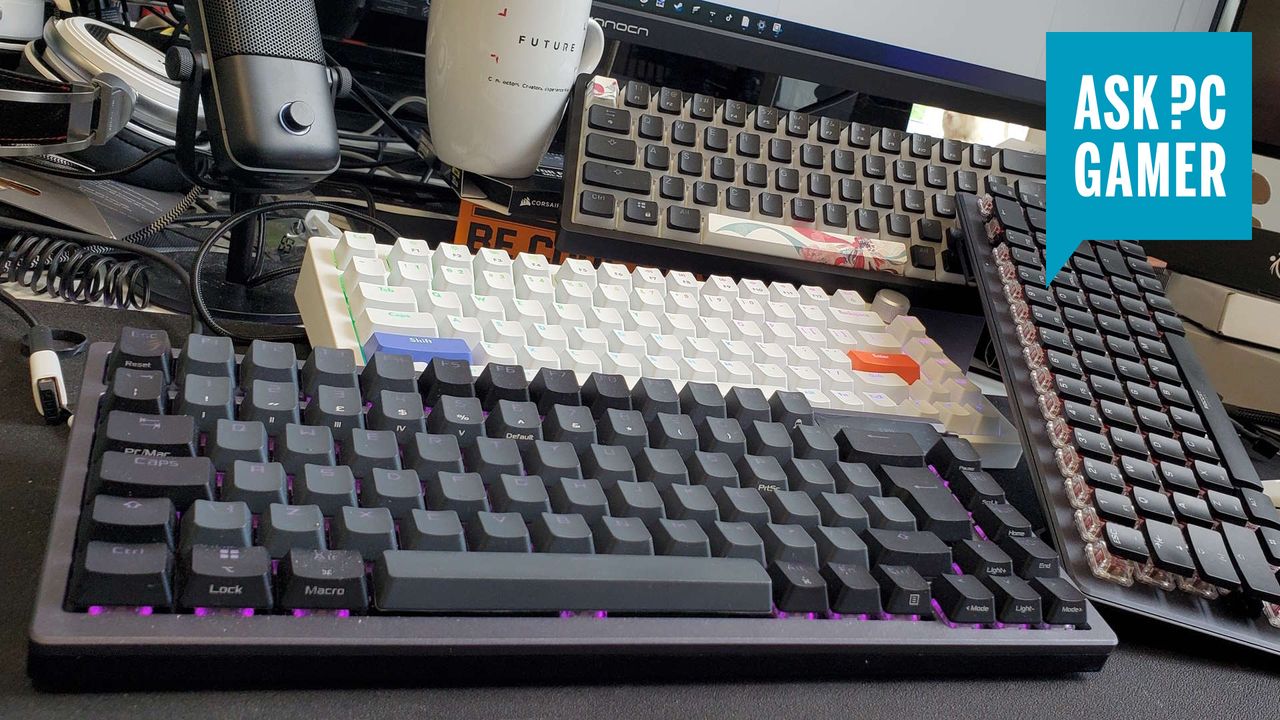
Getting your mitts on a great keyboard really can be a game-changer. It's one of the few things that you don't realise can make such a big quality of life difference until you've experienced it.
There are plenty of stellar options around these days, too, whether you're getting the absolute best gaming keyboard money can buy or a budget one to save cash for the rest of your build. After all, there are plenty of cheap but solidly built mechanical keyboards these days. Especially right now, with Black Friday imminent and keyboard deals popping up left, right, and centre.
Unfortunately, that there are so many great options out there can be a curse as much as a blessing; it can be hard to decide what's important and what's not. I've been in the game for a while now, though, so I know the most common pitfalls people fall into when trying to decide which gaming keyboard to buy, and I've put this guide together to help you avoid them.
Keep the following tips in mind and you'll have a better chance of deciding which keyboard to go for:
- Good mechanical keyboards are cheaper than you think
- You don't need Bluetooth, but 2.4 GHz wireless is great
- Go for a Hall effect keyboard for competitive FPS gaming
- Don't give up keys you use just to have a small keyboard
- Don't underestimate typing sound and feel
1. Cheap mechs
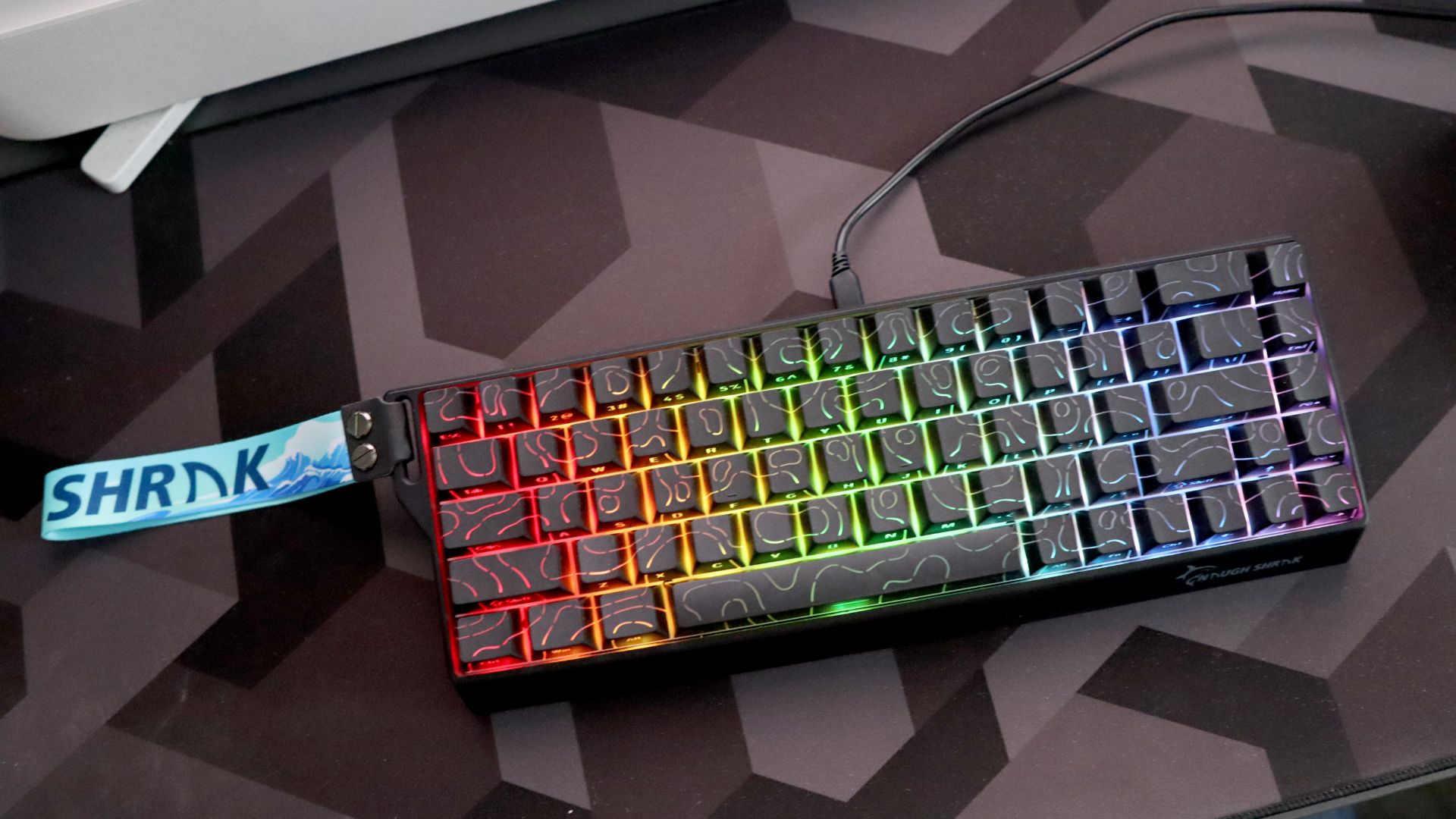
1. Good mechanical keyboards are cheaper than you think
Back in the day, getting a decent mechanical keyboard meant really splashing out, and the cheaper ones were so trash that you were probably better off opting for a membrane keyboard. Thankfully that's not the case anymore.
These days you can pick up a good mechanical keyboard for pretty cheap. Yes, there are still expensive options out there, and these are well worth it if you can afford it. But the past decade of mechanical keyboards has been a rising tide to raise all boats. High-end keyboards have gotten even higher-end, but plenty of cheap ones have risen in quality to fill that gap.
Case and point is the Gamakay x NaughShark NS68. You can frequently pick one of these up for as little as $43. Featuring pleasant PBT keycaps with stylish side-mounted legends, plus powerful Hall effect switches, it's a downright impressive keyboard for the price. I'll explain why Hall effect keyboard switches are so important in a bit, but we consider the Gamakay x NaughShark NS68 the best budget gaming keyboard for a reason.
Of course, this doesn't mean every cheap mechanical keyboard is amazing—you're sure to stumble across the odd rattly one that brings you right back to 2007. Just know that there are some fantastic mechanical keyboards out there, these days, for prices that shouldn't break the bank. Just make sure to check out some keyboard guides and reviews before parting with any money.
2. Wireless
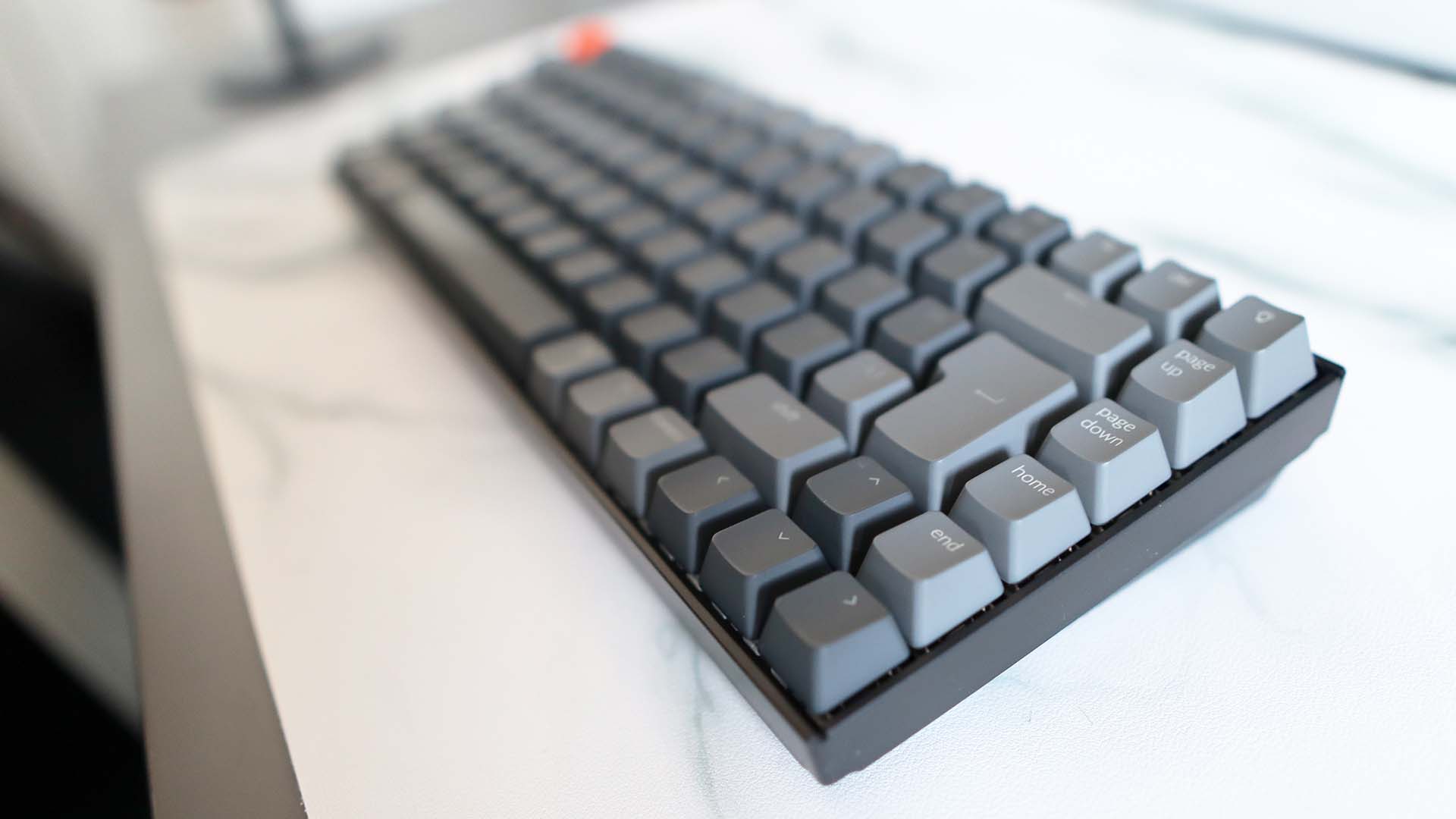
2. You don't need Bluetooth, but 2.4 GHz wireless is great
Wireless keyboards are great, and although they're not ubiquitous they're much more popular than they used to be. But not all wireless tech is built equal, and this can be an especially important caveat for gaming.
Although it's not quite as common as it used to be, some wireless keyboards only have the option for Bluetooth and lack a dedicated USB 2.4 GHz connection. Some Keychron K-series keyboards—the Keychron K2 V2, for instance—don't have 2.4 G as an option, only Bluetooth wireless or USB-C wired.
Bluetooth's great because most systems have a receiver built in, so it means you can use a Bluetooth keyboard with most anything. But it's not so great compared to 2.4 GHz, which yes, does require a separate USB receiver to work, but is much faster.
What "faster" means in this context is less latency between when you press a key and when your computer or device receives that input and acts on it. This can be especially important for competitive gaming, where milliseconds can mean the difference between dodging or dying to an attack. Unless you only play super-casual games that require barely any reaction time, you should ensure your wireless keyboard of choice offers a 2.4 GHz connection.
3. Hall effect
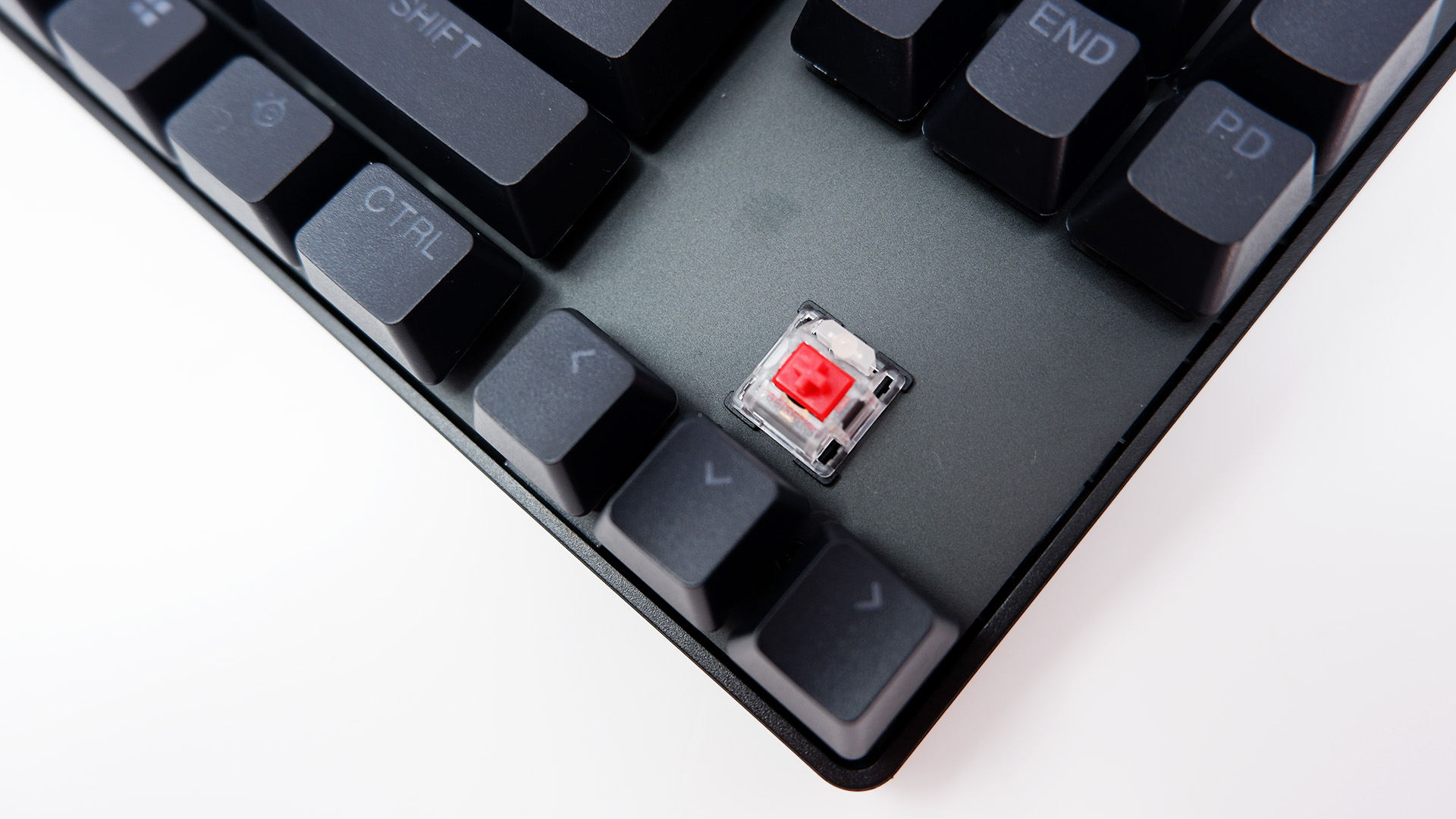
3. Go for a Hall effect keyboard for competitive FPS gaming
You might have heard the words "Hall effect" mentioned if you've been keeping your eye on some of the best gaming controllers over the past few years. That's chiefly because the technology is now being used in some analogue controllers to eliminate joystick drift.
You may be less likely to have heard the tech mentioned in regards to gaming keyboards, though. That's because companies like to market Hall effect keyboards around a million-and-one different names for the same handful of things Hall effect can offer: rapid trigger, rapid tap, snap tap, and rappy tappy (no, I'm not making these up). The basic tech that allows for all these features is the same, though, and it's Hall effect.
Hall effect tech is what allows the keys on some gaming keyboards to have pinpoint-accurate and adjustable actuation and reset points, which is great for competitive FPS gaming.
These keyboards use magnets to measure when a key is pressed rather than physical contacts, and this magnetic method allows for accurate tracking of the switch the entire way down and up. This means you can set the keyboard to register a keypress as high or as low as you want, and you can set different keys to have different actuation points.
You can even set your keys to reset and allow for re-pressing the key as soon as you start lifting the key up again. This means wherever you lift it you can press it down again, which feels incredibly responsive and why it's called "rapid trigger". It can even be used for easy counter-strafing in some games by using SOCD.
Hall effect keyboards also have the benefit of being able to offer a user the ability to run slower by holding down the key only part way (in games that support it). There are other keyboard types that allow for analogue functions but most tend to use Hall effect tech now.
One downside, however, is that there aren't oodles of Hall effect switches to choose from, which means you won't have many options to mix, match, and hot-swap. That said, some Hall effect keyboards already feel very nice to type on, so you might not be missing out on too much anyway.
It's also worth noting that TMR is a similar magnetic technology that's even more precise than Hall effect, and is also slowly making its way to gaming keyboards. However, as far as pricing goes, Hall effect switches are still the ones to go for.
4. Small sacrifices
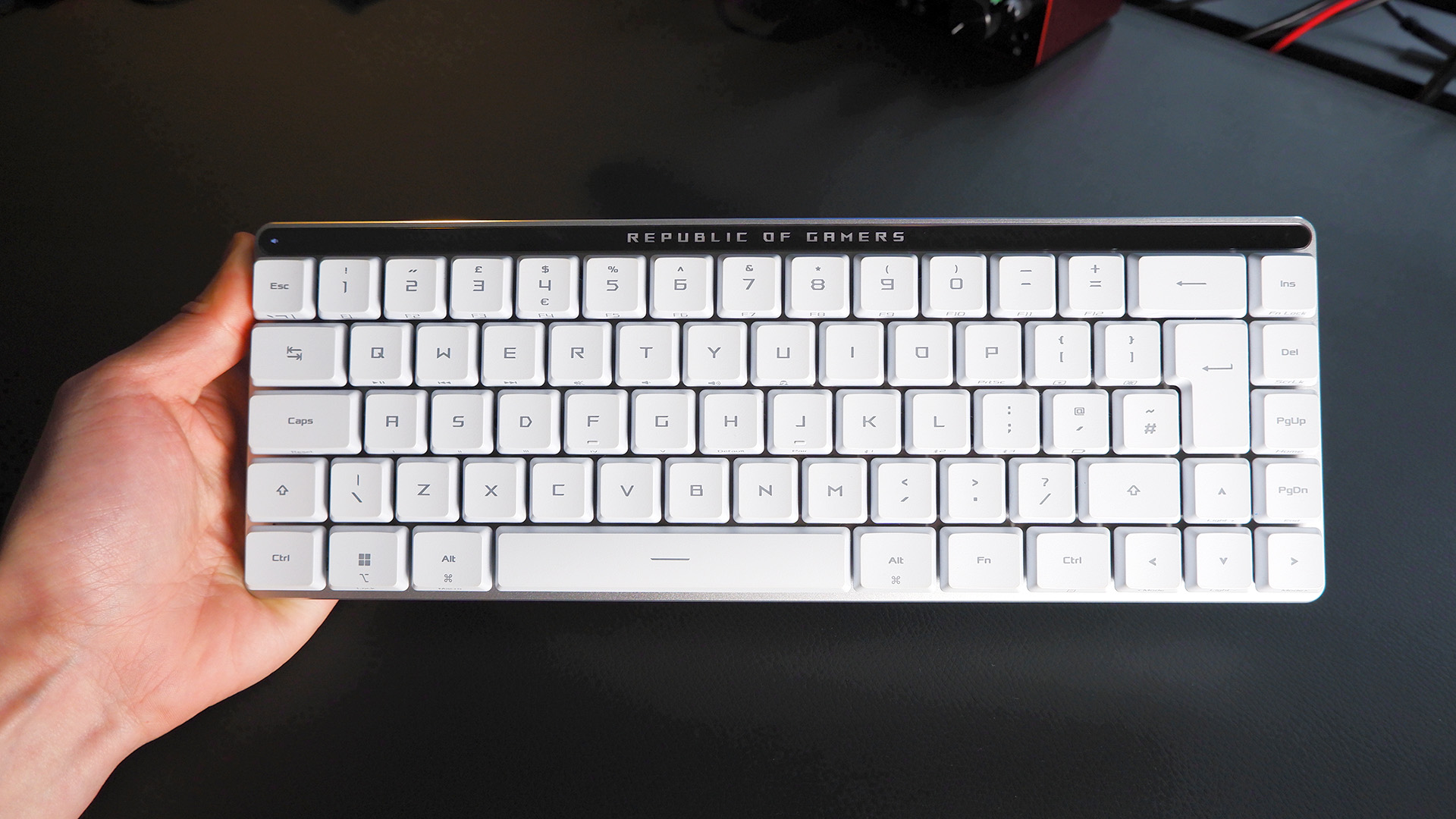
4. Don't give up keys you use just to have a small keyboard
Look, I get it, small keyboards are cool, and practical, too. At least, that's the theory. But just make sure a small board will be practical for your own specific use case before you commit to lopping off a portion of its keys.
Keyboards come in a range of sizes, and over the years smaller form factors have become more popular. You still have full-sized keyboards, of course, which include all function keys, arrow keys, the number pad, and so on. But you also have smaller ones. Here's a rundown of the most popular form factors:
- 100%: All keys (full-sized)
- 80%: No numpad (tenkeyless / TKL)
- 75%: No numpad, smushed up home and arrow keys
- 65%: No numpad, no function keys, smushed up home and arrow keys
- 60%: No numpad, no function keys, no arrow keys, no home keys
Personally, I use a TKL (80%) keyboard, meaning it removes the numpad. I must tell you, though: I do, perhaps surprisingly, miss my numpad. Before I ditched the numpad, when I learnt to touch type on one properly, I ended up using it quite a lot, whether I was entering spreadsheet info, card details, or any number more than two digits long. It's just much easier to enter numbers without looking down at the keyboard when using a number pad than it is when using the top row of keys.
If you do want a TKL keyboard (or smaller) but think you might miss the number pad, however, not all is lost. This is because—and this is advice I'm also telling myself—you can pick up third-party standalone numpads pretty much anywhere, including on Amazon. Some are pretty cheap, and there are even some rather dashing mechanical ones. Some snazzy keyboards, like the modular Be Quiet! Dark Mount, even come with a detachable number pad you can attach either side of the main board.
But cheap or not, it's an extra cost, not to mention another thing to plug in and store when you're not using it (and if you're not storing it, why opt for TKL in the first place?).
You should think even more carefully about getting a keyboard that eliminates more keys than the zero-through-nines, too. If you're going extra-small, think long and hard about whether you really don't need those function keys, for instance. Maybe you use the F5 refresh or media controls more than you realise.
I'm not saying don't go for a small keyboard, I'm just saying to consider which keys you actually use before you get rid of them for good.
5. Sound and feel
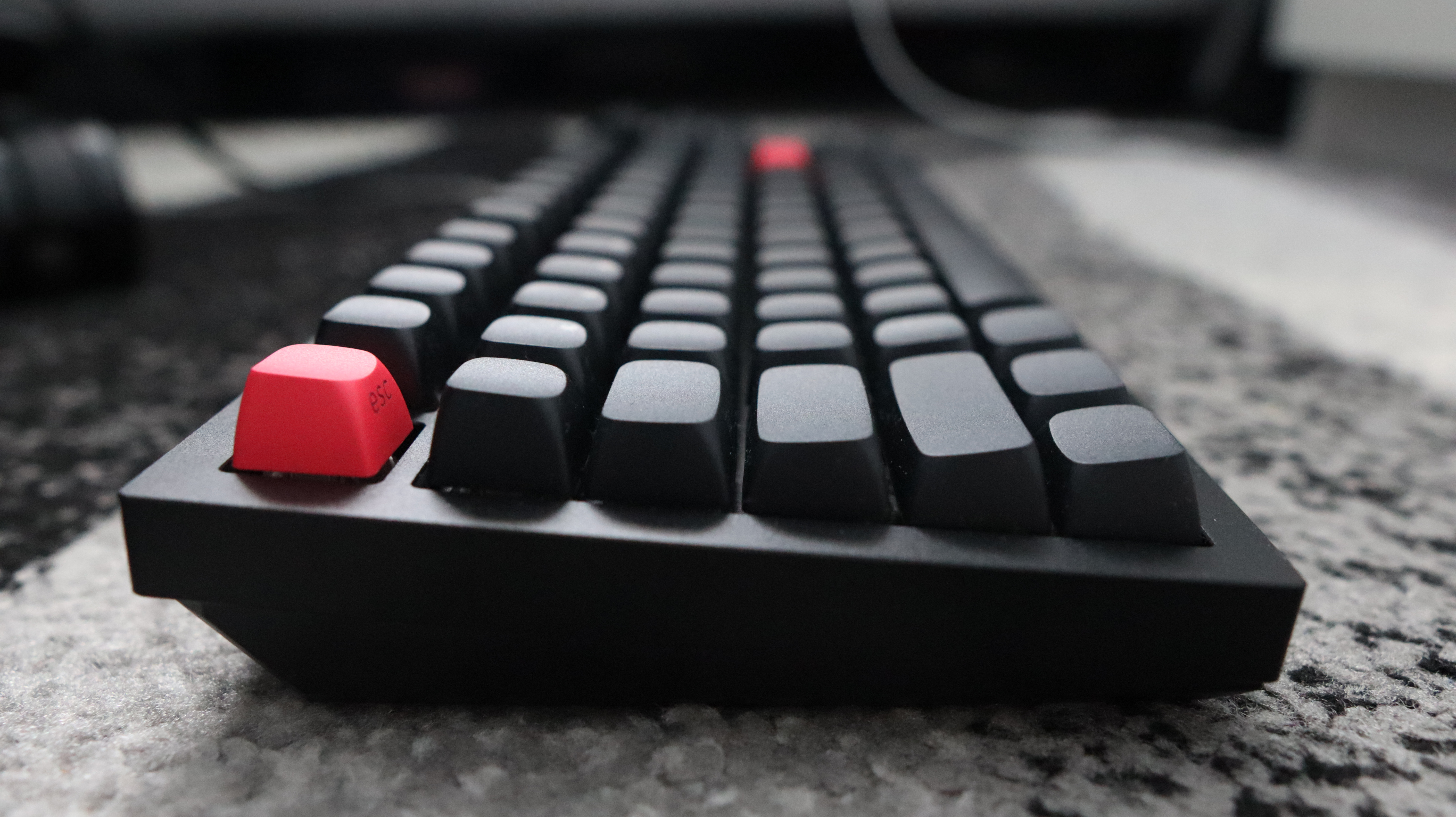
5. Don't underestimate typing sound and feel
If you're in the market for a gaming keyboard, you're obviously going to be interested in how it is for gaming. But unless you use your PC like a console, you'd be remiss not to also consider how it is for typing.
Whether you're tapping away all day like me or typing the odd URL and password, you might be surprised just how important that sweet thickity thockety clickity clack is for day-to-day enjoyment of your keyboard. Especially if you're prone to the odd bout of in-game team chat "encouragement".
Whether you've a penchant for the luscious, creamy thock of a heavily dampened board or the more gentle tip-tip of a stiff plate and hollowed body, those sounds can make or break the new keyboard thrill, in my experience. And it isn't all about sound, either: feel is arguably what matters above all else.
What makes for a great typing feel can differ from person to person, but you'll definitely want keys that don't wobble—including the stabilised keys such as the space bar and enter key—and that aren't scratchy, meaning they're lubed well. You might also want a keyboard with a little flex thanks to a bouncy mount. Switch choice matters, too, though that's more of a subjective choice.
Unfortunately there's no way to judge from a spec sheet alone whether a keyboard's going to feel great to type on. Without having tried similar keyboards yourself, the best way to know is to read and watch reviews.
Other aspects of keyboards are without a doubt important for gaming—latency, software, and heck, even RGB lighting if you're into all that. Just don't forget about typing sound and feel, because keyboards are for more than just WASD.
















